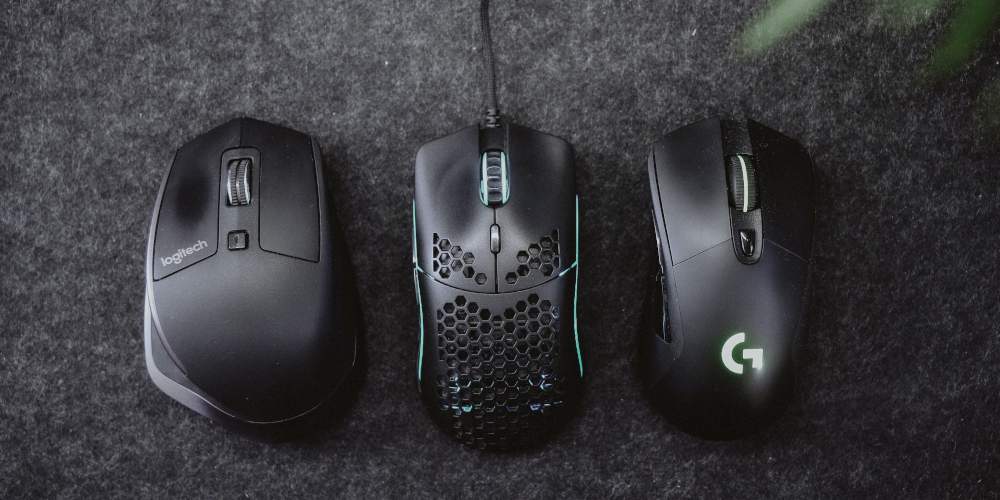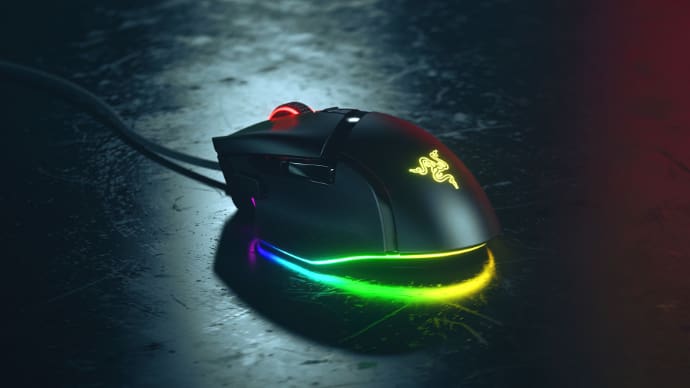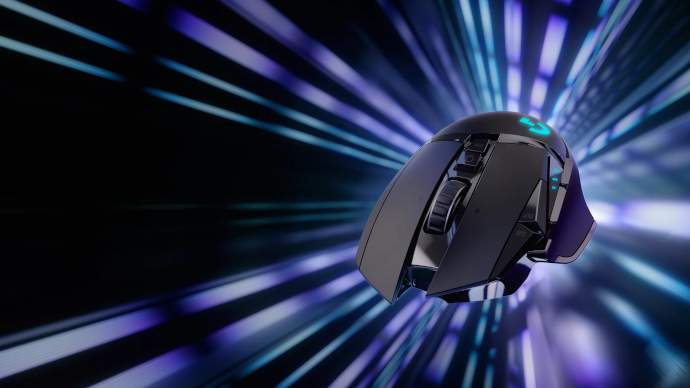Wired Mice: The Pros and Cons
Thanks to mice like the Logitech G502 Lightspeed Wireless, wireless mice have essentially caught up to wired mice in terms of performance. But they’re still far from perfect.
Wireless interference can still happen,which can potentially cause match-losing misclicks at the exact wrong time. You’re far less likely to run into that issue with a wired mouse.
Wired mice also don’t have batteries.This prevents several common issues, like never needing to worry about swapping out batteries or plugging in your mouse for a recharge at inopportune moments.
Wireless mouse batteries also add weight,meaning wired mice tend to be lighter than their wireless siblings. This is an issue of personal preference—you might like heavier mice—but one worth keeping in mind.
Wired mice are generally more affordable than their wireless equivalents, even if only by a little.Why? Because they don’t need extra components to transmit wireless signals.
Related:Awesome PC gaming accessories worth getting
One of the biggest issues with wired gaming mice is cable drag.The cable can snag on things or even pull your mouse around with its own weight. A long cable can also cause issues if you’re using a gaming laptop, as the excess cable can be a nuisance to deal with.
Wired mice cables can also be fragile.More and more gaming mice these days come with a braided fabric outer layer, which makes the cable more durable—but it can still snag and break, at which point you’re shopping for a new mouse again.
Wired mice keep you tethered to your desk.IIf you’re just sitting at a desk, this may not be an issue. Sometimes, even then, you’ll end up with a cable slightly too short to comfortably reach your PC.
Wireless Mice: The Pros and Cons
Wireless mice have no cable drag.You only need to deal with the mouse itself and—depending on the mouse—maybe a dongle that plugs into your computer. This gives you much more freedom of movement, which can provide an advantage.
Wireless mice also have much longer range.This may not seem to be a big deal, but if you want to hook your gaming PC up to your TV and kick back on your couch, a wireless mouse and keyboard are must-haves.
Wireless mice are more durable than wired mice,at least for the most part, because there are no moving parts to break. Of course they can still break, but you don’t have to worry about snagging on anything.
The biggest issue with wireless mice is the battery.It’s no fun to be mid-game and see a pop-up warning about your mouse about to die—or maybe it just dies without warning. If you’re in the middle of aCall of Dutymatch when this happens, you can kiss your K/D goodbye.
Wireless mice are almost always heavier than their equivalent wired versions due to said batteries.This is personal preference, of course, and you might prefer a heavier mouse—but it’s worth keeping in mind when you’re mouse shopping.
Expect to pay more for wireless mice, especially gaming-specific wireless mice.Sure, you can opt for a budget wireless mouse off Amazon (we don’t recommend it), but no matter what, gaming wireless mice will be pricier than wired gaming mice.
Wired or Wireless Mice for You?
If you’re a casual gamer who doesn’t play highly competitive action-intense video games, you’re better off with a wireless mouse.
Wireless mice have gotten so good and so fast that there’s little reason to choose a wired mouse for casual gaming. With all the conveniences, any minor loss in performance is worth the trade-off.
But if you’re a budding pro gamer, you have two options: spend more and get the best wireless gaming mouse you can afford, or spend less and settle for any decent wired gaming mouse. Many pro gamers these days use wireless mice, but some still opt for the stability of a wired mouse.
If you’re budget-minded and want a dedicated gaming mouse, go for a wired model. You’ll save a significant amount of money without having to worry about losing performance.
Read next:Why I quit PC gaming
The Pros of Wired Mice for Gaming
Wireless interference can still happen,which can potentially cause match-losing misclicks at the exact wrong time. You’re far less likely to run into that issue with a wired mouse.
Wired mice also don’t have batteries.This prevents several common issues, like never needing to worry about swapping out batteries or plugging in your mouse for a recharge at inopportune moments.
Wireless mouse batteries also add weight,meaning wired mice tend to be lighter than their wireless siblings. This is an issue of personal preference—you might like heavier mice—but one worth keeping in mind.
Wired mice are generally more affordable than their wireless equivalents, even if only by a little.Why? Because they don’t need extra components to transmit wireless signals.
Related:Awesome PC gaming accessories worth getting
The Cons of Wired Mice for Gaming
One of the biggest issues with wired gaming mice is cable drag.The cable can snag on things or even pull your mouse around with its own weight. A long cable can also cause issues if you’re using a gaming laptop, as the excess cable can be a nuisance to deal with.
Wired mice cables can also be fragile.More and more gaming mice these days come with a braided fabric outer layer, which makes the cable more durable—but it can still snag and break, at which point you’re shopping for a new mouse again.
Wired mice keep you tethered to your desk.IIf you’re just sitting at a desk, this may not be an issue. Sometimes, even then, you’ll end up with a cable slightly too short to comfortably reach your PC.
The Pros of Wireless Mice for Gaming
Wireless mice have no cable drag.You only need to deal with the mouse itself and—depending on the mouse—maybe a dongle that plugs into your computer. This gives you much more freedom of movement, which can provide an advantage.
Wireless mice also have much longer range.This may not seem to be a big deal, but if you want to hook your gaming PC up to your TV and kick back on your couch, a wireless mouse and keyboard are must-haves.
Wireless mice are more durable than wired mice,at least for the most part, because there are no moving parts to break. Of course they can still break, but you don’t have to worry about snagging on anything.
The Cons of Wireless Mice for Gaming
The biggest issue with wireless mice is the battery.It’s no fun to be mid-game and see a pop-up warning about your mouse about to die—or maybe it just dies without warning. If you’re in the middle of aCall of Dutymatch when this happens, you can kiss your K/D goodbye.
Wireless mice are almost always heavier than their equivalent wired versions due to said batteries.This is personal preference, of course, and you might prefer a heavier mouse—but it’s worth keeping in mind when you’re mouse shopping.
Expect to pay more for wireless mice, especially gaming-specific wireless mice.Sure, you can opt for a budget wireless mouse off Amazon (we don’t recommend it), but no matter what, gaming wireless mice will be pricier than wired gaming mice.
If you’re a casual gamer who doesn’t play highly competitive action-intense video games, you’re better off with a wireless mouse.
Wireless mice have gotten so good and so fast that there’s little reason to choose a wired mouse for casual gaming. With all the conveniences, any minor loss in performance is worth the trade-off.
But if you’re a budding pro gamer, you have two options: spend more and get the best wireless gaming mouse you can afford, or spend less and settle for any decent wired gaming mouse. Many pro gamers these days use wireless mice, but some still opt for the stability of a wired mouse.
If you’re budget-minded and want a dedicated gaming mouse, go for a wired model. You’ll save a significant amount of money without having to worry about losing performance.
Read next:Why I quit PC gaming



![]()




























